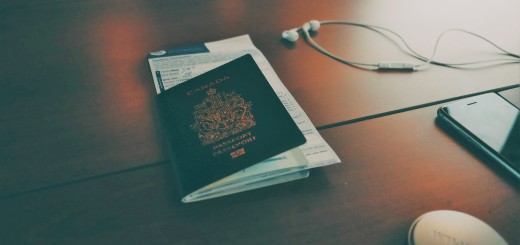Veils, Oaths, and Canadian Citizenship: Ishaq v Canada
On February 6, 2015, in the well-publicized decision of Ishaq v Canada (Minister of Citizenship and Immigration), 2015 FC 156 [Ishaq], the Federal Court ruled that it was unlawful for the Canadian Government to ban new citizens from reciting the citizenship oath with a face-covering veil. Since the decision was released, the Harper Government has announced emphatically that it will appeal the judgment.
Facts
Zunera Ishaq, who has been a permanent resident of Canada since 2008, is a devout Sunni Muslim. Her religious beliefs require her to wear a niqab, which covers most of her face, in public and in front of unrelated adult males. She applied for citizenship, and a citizenship judge approved her application on December 30, 2013. Although she was granted citizenship, she is not considered a Canadian citizen under paragraph 3(1)(c) of the Citizenship Act, RSC 1985, c C-29 until she takes the oath of citizenship.
In 2011, Citizenship and Immigration Canada (“CIC”) introduced Operation Bulletin 359, which has been incorporated into section 6.5 of the CIC policy manual CP 15: Guide to Citizenship Ceremonies (the “Manual”). Section 6.5 of the Manual requires candidates that wear face coverings to remove their face coverings when they recite the oath at the citizenship ceremony (the “Policy”).
Refusing to remove one’s face covering will result in a candidate not receiving his or her citizenship certificate. Such candidates will be permitted to attend another ceremony, but, if they continue to refuse to remove their face coverings, their application for citizenship will end.
When she learned about the Policy, Ishaq initially requested to reschedule her citizenship ceremony. The following day she filed an application for judicial review and later moved for an order enjoining the Government from applying the Policy at her ceremony. While she had previously removed her face covering in private to female staff in order to confirm her identity, Ishaq was unwilling to do so in a public setting.
In response, the Government agreed to reschedule the ceremony and offered to have Ishaq sit in the front or back row during the ceremony and to be seated next to a woman. The Government argued that this would make it more difficult for other oath takers to see her face during the recital of the oath. This arrangement was refused, as the citizenship judge, the officers, and potential photographers could be male.
The Federal Court Decision
While Ishaq challenged the Policy on the basis of sections 2(a) and 15(1) of the Canadian Charter of Rights and Freedoms, Part I of the Constitution Act, 1982, Justice Boswell allowed the appeal on the ground that the Policy is inconsistent with its governing legislation.
Section 17(1)(b) of the Citizenship Regulations, SOR/93-246 [Regulations] requires citizenship judges to “administer the oath of citizenship with dignity and solemnity, allowing the greatest possible freedom in the religious solemnization or the solemn affirmation thereof” (Ishaq, para 53).
Justice Boswell reasoned that imposing the Policy on citizenship judges makes it impossible for them to comply with section 17(1)(b) of the Regulations because the Policy is inconsistent with citizenship judges’ duty to afford the greatest possible freedom in taking the oath. He argued that a citizenship judge cannot comply with this duty if the Policy forces citizenship candidates to violate a tenet of their religion in order to take the oath.
The Minister of Citizenship and Immigration argued that the Policy is only a guideline and citizenship judges are free to disregard it. The argument is that, at best, the Policy can only create an expectation that it will be followed, so it cannot be said that the Policy would fetter a citizenship judge’s discretion.
The Minister’s argument, however, is inconsistent with both the language of the policy and internal correspondence between CIC officials that was put forward as evidence. The Manual contains no indication that discretion should be exercised. The language of the policy suggests it is tantamount to a law.
Furthermore, internal CIC correspondence indicates that it is the intention of the Policy that no private accommodations be made and that a citizenship judge’s prior contrary statement in the media is “problematic” and contradictory to the Policy.
Accordingly, Justice Boswell found the Policy to be invalid. Because the case was decided on a non-constitutional ground, Justice Boswell did not engage in a fulsome analysis of the Charter issues that were put forward by the applicant.
Implications
The Government’s steadfast refusal to grant alternative accommodations to women who have a religious obligation to wear a face-covering veil is unsettling. Justice Boswell himself recognized that this Policy could dissuade women who wear a niqab from even applying for citizenship.
Evidence that was put forward demonstrates that the Policy affects approximately 100 women per year. The oath takes less than one minute to recite. Granting alternative accommodation for these women to take the oath in private in front of a female citizenship judge would not be an onerous undertaking, and, in fact, this is what was done prior to the implementation of the Policy. No justification has been given for the change.
Considering the modest accommodations that would be needed to allow women affected by the Policy to recite the oath without any compromise to their religious practices and dignity, it is disconcerting but unsurprising that the Government would choose to allocate far greater resources to further litigating this matter during an election year.
In Ishaq, the federal government repeatedly argued that the applicant did not have to pursue Canadian citizenship if she did not want to comply with the Policy. The Government stated that she would still have the benefits of permanent residence, ignoring the fact that that would leave her politically powerless. Along with the stringent changes to the citizenship process introduced in the Strengthening Canadian Citizenship Act, SC 2014, c 22, the Harper Government’s position in Ishaq makes it clear that it views citizenship as a privilege and not a right.






Join the conversation